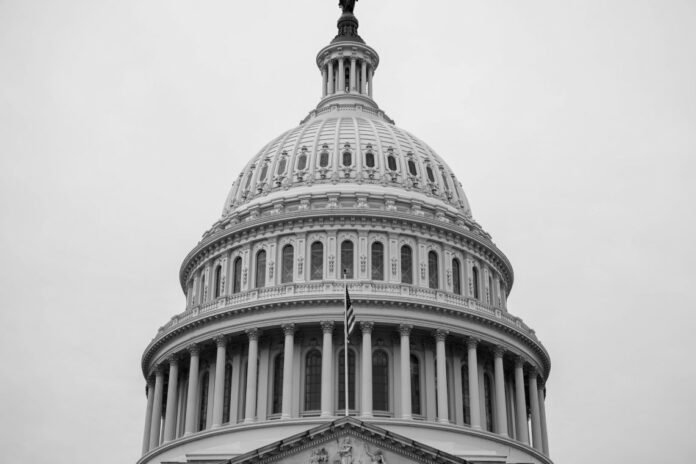The House Financial Services Committee targets CBDC issued by the Federal Reserve, bill to ban it passed.
Summary
Federal Reserve’s efforts to issue its own CBDC in vain
In a significant development on Capitol Hill, the House Financial Services Committee has approved a legislative measure to limit the prospects of a U.S. Central Bank digital currency (CBDC).
This move underscores the ongoing debate over the digitization of the U.S. dollar and its potential consequences.
The committee action sparked an intense partisan debate, with Democrats and Republicans clashing over the future of CBDCs and their implications for the financial landscape.
The committee’s decision
The House Financial Services Committee, led by Chairman Patrick McHenry (R.C.), took a clear position on the issue of CBDCs.
The committee’s decision, which received strong Republican support, is based on the belief that any U.S. CBDC must receive explicit authorization from Congress.
This determination is supported by a commitment to safeguarding both the privacy of U.S. citizens and the stability of the national financial system, given the potential risks associated with CBDCs.
At a time when Congress is grappling with the possibility of a government shutdown, House lawmakers have prioritized a proactive approach to CBDCs.
The bill passed seeks to proactively ban CBDC pilot programs before they are even proposed.
It also seeks to prohibit the Federal Reserve (Fed) from issuing a retail digital currency that could be used for surveillance purposes.
In essence, this bill seeks to ensure that any progress toward a government-backed digital token is subject to explicit congressional authorization.
While the House’s progress on CBDC-related legislation is indeed noteworthy, its path in the Senate remains uncertain.
The Senate Banking Committee, led by Senator Sherrod Brown (D-Ohio), shows a different perspective, less favorable to the digital asset sector.
This disparity of views between the House and Senate underscores the complexity of the CBDC debate and the difficulty of reaching consensus on this issue.
Maxine Waters’ opposition to defending the Federal Reserve CBDC
The bill has faced significant opposition from the group’s top Democrat, Congresswoman Maxine Waters (California).
Waters expressed concern that this bill could hinder the United States in its quest for a global standard for central bank digital currencies, a race in which other countries, particularly China, are actively participating.
He accused Republicans of adopting an “anti-innovation stance” toward CBDCs and argued that this legislation would hinder research and prevent progress.
Waters warned that such obstacles could potentially lead to the dollar losing its status as the world’s reserve currency, causing U.S. citizens to lose the benefits of faster, cheaper and easier payments.
The Federal Reserve’s position
Federal Reserve Vice Chairman Michael Barr emphasized that the central bank will not proceed with CBDC initiatives without explicit direction from the White House and the backing of congressional legislation.
Despite Republican claims that the Biden administration is supporting the creation of a CBDC, federal agencies are currently in the preliminary stages of “basic research” to fully understand the implications of a U.S. digital token.
This cautious approach is in line with the Fed’s commitment to making informed decisions in the interest of the U.S. economy.
Conclusion
The House Financial Services Committee’s approval of legislation to obstruct the development of a U.S. CBDC underscores the deep divisions and complex considerations surrounding this emerging financial technology.
While the House moves forward in its position on CBDCs, the Senate’s response remains uncertain. The clash between supporters and opponents of CBDCs reflects a broader debate over innovation, privacy, and the future of the U.S. dollar on the global stage.
As the digital currency landscape continues to evolve, the fate of CBDCs in the United States remains a topic of great interest and ongoing legislative consideration.




